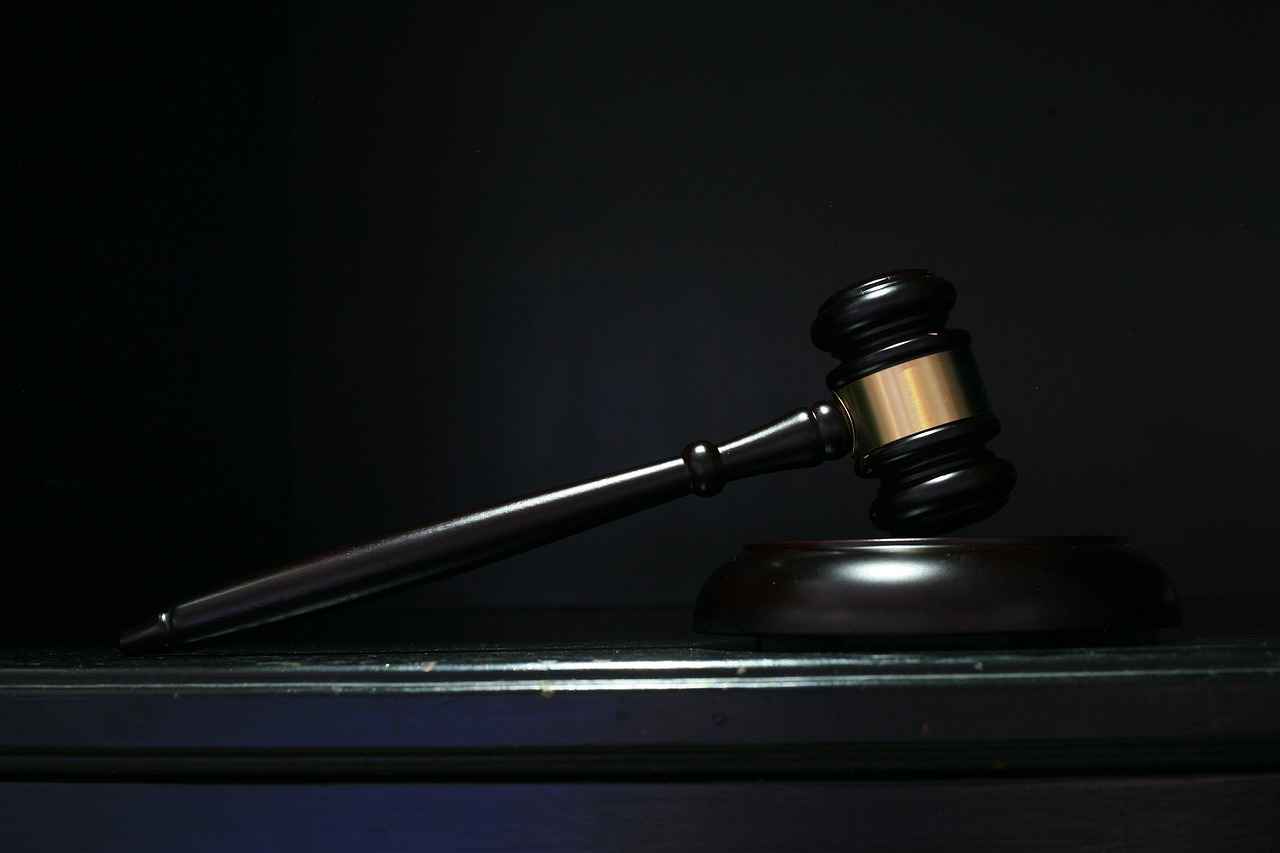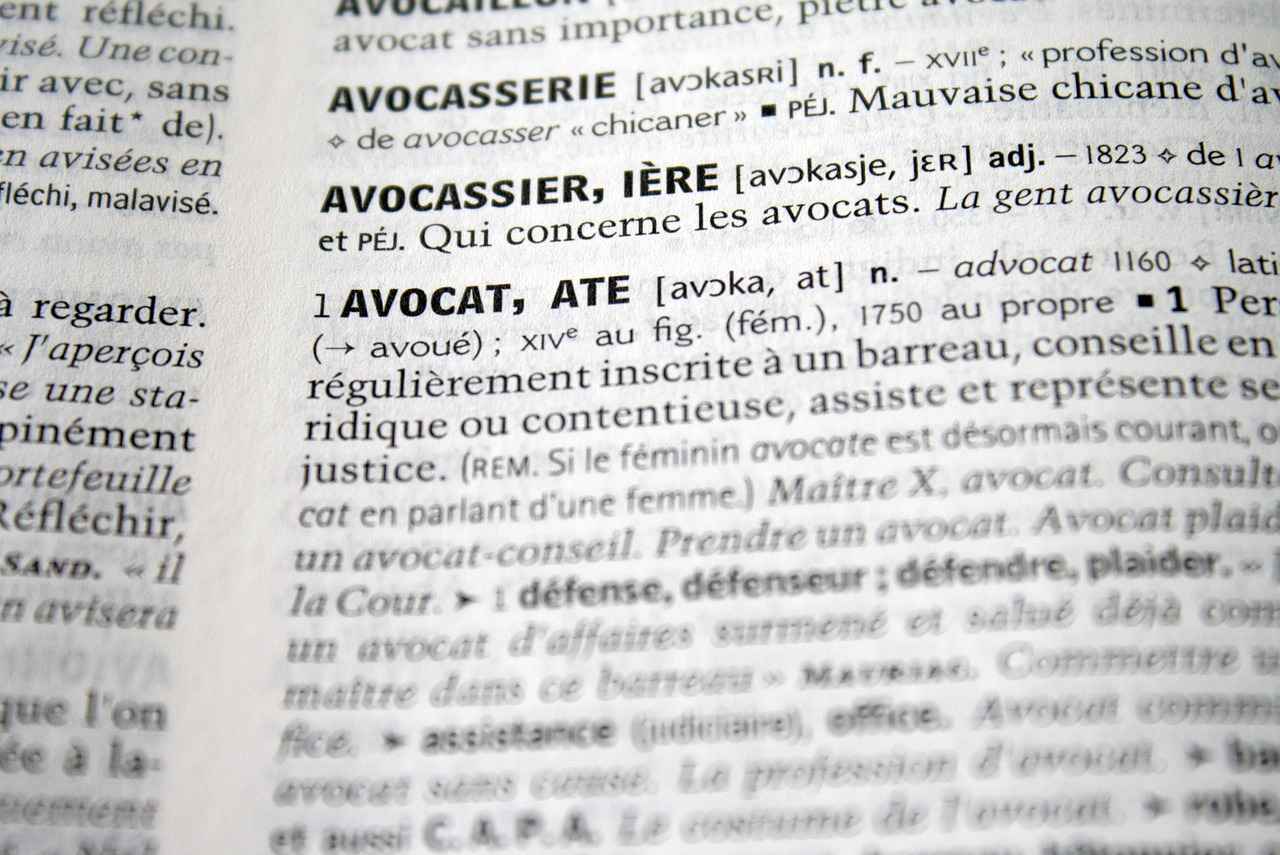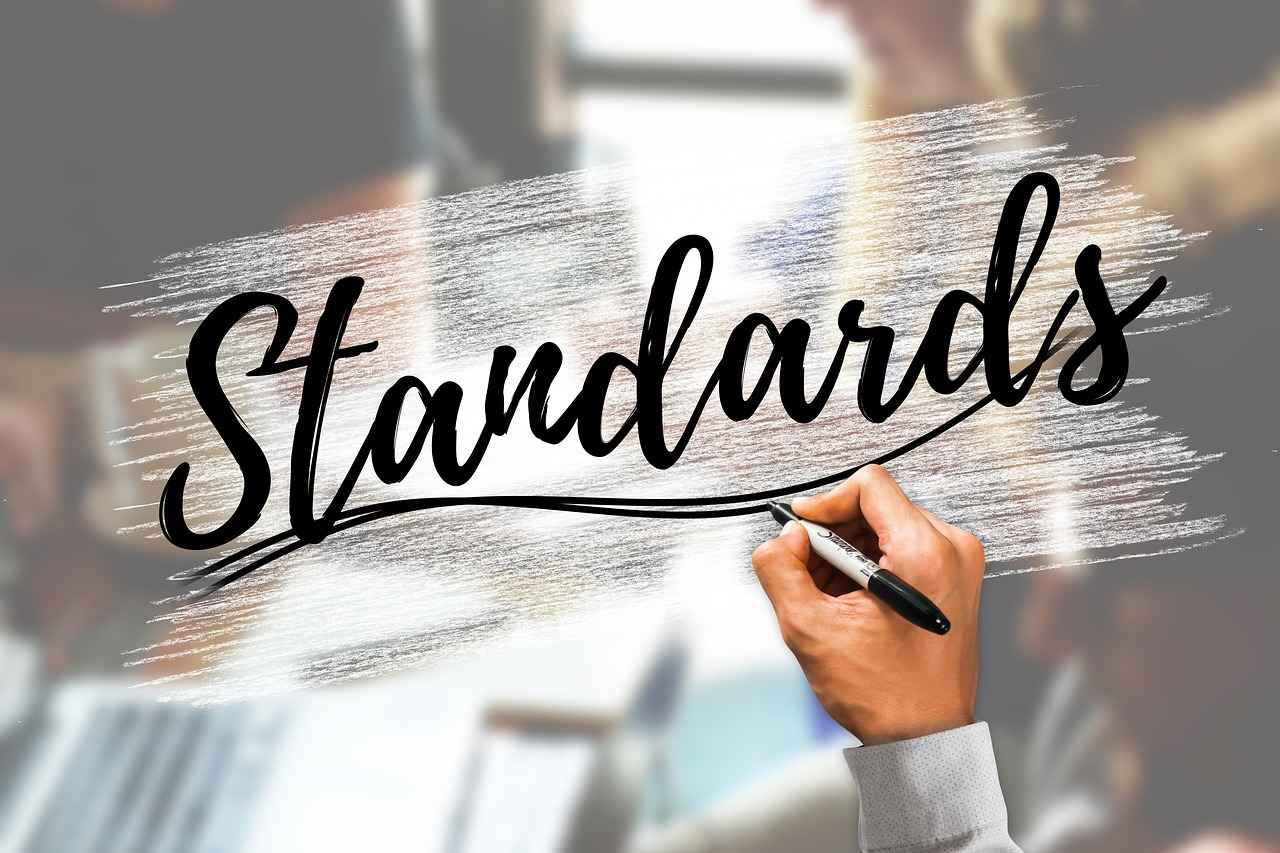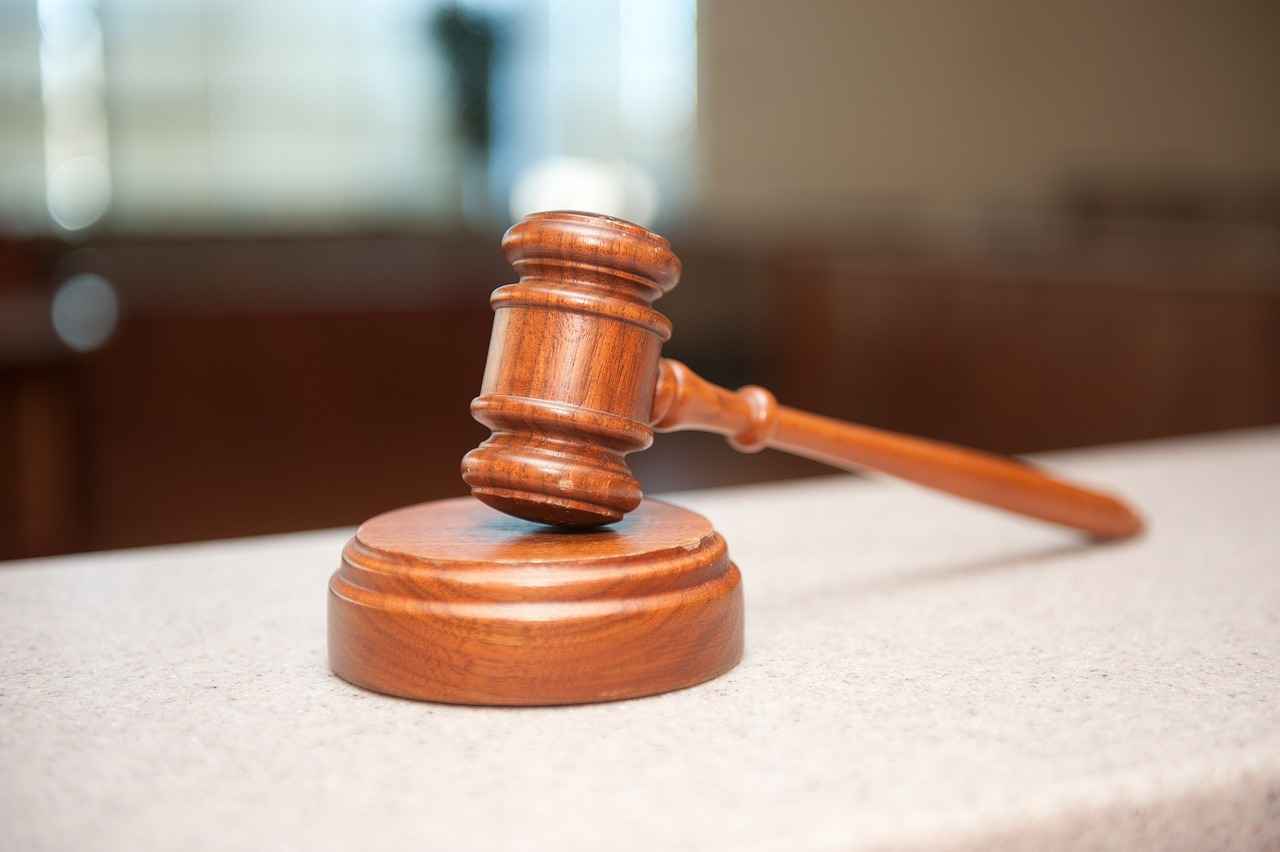This article provides a comprehensive guide to navigating the legal landscape in North Las Vegas, helping you identify the most qualified attorneys for various legal needs.
Understanding Personal Injury Cases
Personal injury cases arise when an individual suffers harm due to someone else’s negligence. To find a specialized attorney, consider using local bar association directories or legal referral services. Look for attorneys with a strong track record in personal injury cases and read reviews from previous clients. A good attorney will offer a free consultation to discuss your case and explain their fee structure.
Medical Malpractice: What You Need to Know
Medical malpractice involves negligence by healthcare professionals that results in harm to a patient. When seeking an attorney in this field, ensure they have specific experience in medical law. Check their credentials, including board certifications and past case outcomes. Referrals from trusted medical professionals can also lead you to qualified legal representation.
Breach of Contract: Legal Implications and Solutions
Breach of contract occurs when one party fails to fulfill their contractual obligations. To find a skilled attorney, look for those who specialize in contract law and have experience in your specific industry. Utilize online legal directories and check for client testimonials to gauge their effectiveness in handling similar cases.
Navigating Property Disputes
Property disputes can stem from boundary issues, easements, or zoning conflicts. An attorney with experience in real estate law is essential for resolving these matters. Seek recommendations from real estate agents or local property management firms. Ensure the attorney has a solid understanding of local laws and regulations.
Landlord-Tenant Disputes: Know Your Rights
Landlord-tenant disputes often involve lease violations or eviction proceedings. To protect your rights, find an attorney who specializes in landlord-tenant law. Look for those who have experience in mediation and litigation, as they can provide valuable insights into your options. Online reviews and local tenant advocacy groups can also help you identify reputable attorneys.
Defamation Cases: Libel and Slander Explained
Defamation involves harming someone’s reputation through false statements, either written (libel) or spoken (slander). When seeking an attorney for a defamation case, look for those with a background in media law or personal injury. Check their success rate in similar cases and ensure they are willing to take your case on a contingency basis if possible.
Employment Disputes: Protecting Your Rights
Employment disputes can cover a range of issues, including wrongful termination and discrimination. To find a labor law attorney, seek professionals who are members of relevant legal associations and have a proven track record in employment law. Look for attorneys who offer free initial consultations to discuss your case.
Product Liability: Holding Manufacturers Accountable
Product liability cases arise when defective products cause harm to consumers. When looking for an attorney in this field, prioritize those with experience in consumer protection law. Research their previous cases and settlements to understand their capability in handling complex product liability issues.
Wrongful Death Claims: Seeking Justice
Wrongful death claims occur when negligence leads to a fatality. A compassionate attorney experienced in wrongful death cases can guide families through this challenging time. Look for attorneys with a focus on personal injury law and a history of successful wrongful death claims. Client testimonials can provide insight into their approach and effectiveness.
Class Action Lawsuits: When to Join Forces
Class action lawsuits allow individuals to sue collectively for shared grievances, such as consumer fraud. When searching for an attorney, focus on those who have successfully handled class action suits in the past. Verify their credentials and check for any disciplinary actions against them through state bar associations.
Assault and Battery: Legal Definitions and Consequences
Assault and battery are serious offenses that can also result in civil lawsuits. When seeking legal representation, find an attorney with experience in criminal defense and civil litigation. Assess their success in similar cases and ensure they are familiar with local laws regarding assault and battery.
Criminal Defense: Navigating Drug Offenses and More
Drug offenses can lead to severe penalties, making it crucial to find a skilled criminal defense attorney. Look for attorneys who specialize in drug law and have a track record of successful defenses. Check their reviews and ask for referrals from trusted sources.
Family Law: Divorce, Custody, and Support Matters
Family law encompasses divorce, child custody, and support issues. An experienced family law attorney can provide essential guidance through emotional legal battles. Look for attorneys who prioritize mediation and have a strong understanding of family law in Nevada.

Understanding Personal Injury Cases
Personal injury cases are a vital aspect of the legal landscape, arising from accidents that cause harm due to negligence. These cases can encompass a wide range of incidents, from car accidents and slips and falls to medical malpractice and workplace injuries. When someone suffers an injury as a result of another party’s failure to act responsibly, they may be entitled to compensation for their losses, including medical expenses, lost wages, and pain and suffering.
Finding the right attorney is crucial in personal injury cases, as the outcome can significantly affect your compensation. Here are some steps and considerations for locating a qualified personal injury attorney:
- Research Specialization: Look for attorneys who specialize in personal injury law. This area of law requires specific knowledge and experience, as it involves understanding both the legal and medical aspects of cases.
- Check Credentials: Verify the attorney’s qualifications, including their education, bar association membership, and any relevant certifications. Membership in professional organizations, such as the American Association for Justice, can also indicate a commitment to this area of law.
- Read Reviews: Online reviews and testimonials can provide insight into an attorney’s reputation and success rate. Websites like Avvo and Martindale-Hubbell offer ratings and reviews from clients and peers.
- Consultation: Schedule initial consultations with potential attorneys. Many personal injury lawyers offer free consultations, allowing you to discuss your case and assess their approach. Pay attention to how they communicate and whether they show genuine interest in your situation.
- Contingency Fees: Most personal injury attorneys work on a contingency fee basis, meaning they only get paid if you win your case. Ensure you understand the fee structure and any additional costs that may arise during the process.
- Assess Experience: Inquire about the attorney’s experience with cases similar to yours. An attorney who has successfully handled cases involving similar circumstances will be better equipped to navigate the complexities of your claim.
- Ask About Case Strategy: During your consultation, ask the attorney about their strategy for handling your case. A well-thought-out plan can indicate their understanding of the legal system and their commitment to achieving the best possible outcome for you.
In summary, personal injury cases can be complex and emotionally taxing. By taking the time to find a specialized attorney who has the right experience and a solid track record, you can significantly improve your chances of receiving the compensation you deserve. Remember, the right legal representation can make a world of difference in your recovery process.

Medical Malpractice: What You Need to Know
Medical malpractice is a serious issue that affects countless individuals across the United States. It arises when healthcare professionals fail to provide the standard of care that a reasonably competent professional would deliver, resulting in harm to the patient. This can include misdiagnoses, surgical errors, medication mistakes, and other forms of negligence. Understanding the intricacies of medical malpractice is crucial for those considering a legal claim.
To successfully navigate a medical malpractice case, it is essential to find a qualified attorney with specific expertise in medical law. Here are some key factors to consider when searching for the right legal representation:
- Experience in Medical Malpractice: Look for attorneys who have a proven track record in handling medical malpractice claims. Their familiarity with medical terminology and procedures can significantly enhance your case.
- Reputation and Reviews: Research potential attorneys through online reviews and testimonials. Websites like Avvo and Yelp can provide insights into other clients’ experiences.
- Professional Credentials: Check for memberships in legal organizations, such as the American Association for Justice (AAJ) or state bar associations, which indicate a commitment to staying updated on legal practices.
- Consultations: Many attorneys offer free initial consultations. Use this opportunity to discuss your case and assess their approach and expertise.
- Contingency Fees: Most medical malpractice attorneys work on a contingency fee basis, meaning they only get paid if you win your case. Ensure you understand their fee structure before proceeding.
When evaluating potential attorneys, be cautious of red flags such as:
- Attorneys who promise guaranteed outcomes or settlements.
- Those who lack experience in medical malpractice cases.
- Professionals who do not provide clear communication or seem disinterested in your case.
In addition to these considerations, it is beneficial to ask prospective lawyers about their strategy for your case. A competent attorney should be able to outline their approach, including whether they will consult medical experts to strengthen your claim. This is particularly important, as medical malpractice cases often hinge on expert testimony to establish the standard of care and how it was breached.
Finally, understanding the statute of limitations for filing a medical malpractice claim in your state is critical. Most states have specific time limits within which you must file your lawsuit, and failing to do so can result in losing your right to seek compensation. Therefore, it is advisable to act promptly and consult with an attorney as soon as you suspect malpractice has occurred.
In summary, navigating the complexities of medical malpractice claims requires not only an understanding of the legal landscape but also the ability to find a qualified attorney who can advocate for your rights. By focusing on experience, reputation, and effective communication, you can increase your chances of a successful outcome in your case.

Breach of Contract: Legal Implications and Solutions
A breach of contract occurs when one party fails to meet their obligations as outlined in a legally binding agreement. This can happen in various contexts, from business deals to personal agreements, and can lead to significant legal ramifications. Understanding the implications of a breach and the available solutions is essential for protecting your rights and interests.
Types of Breaches
- Minor Breach: Also known as a partial breach, this occurs when one party fails to perform a small part of the contract without affecting the overall agreement.
- Material Breach: A more serious violation that significantly undermines the contract’s value, allowing the non-breaching party to seek damages or terminate the agreement.
- Anticipatory Breach: This happens when one party indicates they will not fulfill their contractual obligations before the due date.
Legal Remedies for Breach of Contract
When facing a breach of contract, there are several legal remedies available:
- Compensatory Damages: Aimed at covering the losses incurred due to the breach, these damages are intended to put the non-breaching party in the position they would have been in had the contract been fulfilled.
- Punitive Damages: In cases of malicious intent, punitive damages may be awarded to punish the breaching party and deter similar behavior in the future.
- Specific Performance: This legal remedy compels the breaching party to fulfill their contractual obligations, often used in cases involving unique items or real estate.
- Rescission: This remedy cancels the contract altogether, releasing both parties from their obligations.
Finding a Qualified Attorney
To navigate the complexities of breach of contract cases, it is crucial to find a skilled attorney. Here are some effective strategies:
- Research and Referrals: Start by asking friends, family, or colleagues for recommendations. Online reviews and ratings can also provide insights into an attorney’s reputation.
- Check Credentials: Look for attorneys who specialize in contract law and have a track record of successful outcomes in similar cases. Verify their education, experience, and any relevant certifications.
- Consultation: Many attorneys offer free initial consultations. Use this opportunity to discuss your case and assess their communication style and expertise.
- Red Flags: Be wary of attorneys who make unrealistic promises or rush through consultations. A trustworthy attorney will provide a realistic assessment of your case.
Conclusion
In summary, a breach of contract can have serious legal implications. By understanding the types of breaches and the available remedies, individuals can better navigate these situations. Moreover, finding a qualified attorney is essential for enforcing your rights and seeking appropriate damages. With the right legal support, you can effectively address breaches and uphold your contractual agreements.

Navigating Property Disputes
Property disputes are a common issue faced by many homeowners and tenants alike. These disputes can stem from a variety of concerns, including boundary disagreements, easements, and adverse possession claims. Understanding the complexities of property law can be challenging, and having an experienced attorney by your side can make a significant difference in resolving these conflicts effectively.
Understanding Boundary Disagreements
Boundary disputes often arise when property lines are unclear or contested. This can happen due to misplaced fences, trees, or even changes in land use. In many cases, property owners may need to refer to surveys and legal documents to clarify their boundaries. An attorney specializing in property law can help interpret these documents and provide advice on how to proceed. They can also negotiate with neighbors to reach a mutually agreeable solution.
Importance of Title Searches
Before purchasing a property, it is essential to conduct a thorough title search. This process reveals any existing liens, easements, or claims against the property. A qualified attorney can assist you in navigating this process, ensuring that you are fully aware of any potential issues that may arise after your purchase. This proactive approach can save you from future legal headaches and financial loss.
Resolving Easement Issues
Easements grant one party the right to use a portion of another party’s property for a specific purpose, such as utility access or a shared driveway. Disputes can arise when one party believes the easement is being violated or improperly used. An experienced attorney can help clarify the terms of the easement and represent your interests in any negotiations or legal proceedings.
Adverse Possession Claims
Adverse possession is a legal doctrine that allows a person to claim ownership of land under certain conditions, typically involving continuous and open use of the property without the owner’s permission. These claims can be contentious and often require substantial legal expertise. An attorney can guide you through the complexities of proving an adverse possession claim or defending against one.
Seeking Mediation and Litigation
Many property disputes can be resolved through mediation, which is often less costly and time-consuming than litigation. An attorney can help facilitate this process, ensuring that both parties have their concerns addressed. However, if mediation fails, litigation may be necessary. Having a knowledgeable attorney to represent you in court can be crucial in achieving a favorable outcome.
Finding the Right Attorney for Property Disputes
- Research Local Attorneys: Start by researching attorneys who specialize in property law in your area. Look for those with good reviews and a solid track record of handling similar cases.
- Check Credentials: Verify the attorney’s credentials, including their education, bar membership, and any relevant certifications. This information can often be found on their firm’s website.
- Schedule Consultations: Many attorneys offer free initial consultations. Use this opportunity to discuss your case and gauge their expertise and approach.
- Ask About Fees: Understanding the attorney’s fee structure is crucial. Some may work on a contingency basis, while others may charge hourly rates. Make sure you are comfortable with the payment arrangement.
- Trust Your Instincts: Finally, trust your instincts when choosing an attorney. You want someone who communicates well and makes you feel confident in their abilities.
In summary, navigating property disputes requires a clear understanding of property law and the complexities involved. Engaging an experienced attorney can help you resolve these issues effectively, whether through negotiation, mediation, or litigation. By following the steps outlined above, you can find a qualified legal professional who will advocate for your rights and help you achieve a favorable resolution.

Landlord-Tenant Disputes: Know Your Rights
Landlord-tenant disputes are a common source of legal conflict, often arising from issues such as lease violations, evictions, and security deposit disputes. Understanding your rights as a tenant or landlord is crucial in navigating these challenges effectively. If you find yourself embroiled in a dispute, seeking legal counsel can significantly influence the outcome of your case.
When searching for an attorney specializing in landlord-tenant law, consider the following steps:
- Research Local Attorneys: Start by looking for attorneys who specialize in landlord-tenant law in your area. Websites like Avvo or FindLaw can provide listings and reviews.
- Check Credentials: Look for attorneys with experience specifically in landlord-tenant disputes. Verify their qualifications, including their education, years of practice, and any relevant certifications.
- Read Reviews: Client testimonials can provide insight into an attorney’s effectiveness and approach. Pay attention to feedback regarding communication, responsiveness, and case outcomes.
- Consultation: Schedule consultations with potential attorneys. Many offer free initial consultations, which can help you gauge their expertise and whether they are a good fit for your case.
- Discuss Fees: Understand their fee structure upfront. Some attorneys charge hourly rates, while others may work on a contingency basis. Make sure you are clear on any potential costs involved.
In landlord-tenant disputes, it’s essential to know your rights. For tenants, this includes the right to a habitable living environment, protection against illegal eviction, and the return of security deposits within a specified timeframe. Landlords, on the other hand, have the right to collect rent, evict tenants for lease violations, and maintain property standards.
In cases of eviction, it’s vital to follow proper legal procedures. Landlords must provide written notice and, if necessary, file for eviction in court. Tenants should respond promptly to any eviction notices and consider legal representation to ensure their rights are protected throughout the process.
Additionally, if a landlord fails to address significant issues, such as health and safety violations, tenants may have grounds to pursue legal action. Consulting with an attorney who understands local housing laws can help tenants navigate these situations effectively.
In summary, landlord-tenant disputes can be complex and emotionally charged. By understanding your rights and knowing how to find a qualified attorney, you can better protect yourself and resolve disputes in a manner that upholds your legal interests.

Defamation Cases: Libel and Slander Explained
Defamation encompasses both libel and slander, representing harmful statements that can significantly damage an individual’s or entity’s reputation. In today’s digital age, where information spreads rapidly, understanding the nuances of defamation is crucial for anyone concerned about their reputation. This article aims to provide clarity on defamation cases and guide you in finding the most qualified attorneys to handle such sensitive matters.
Defamation occurs when false statements are made about someone, which leads to reputational harm. Libel refers to defamation in written form, such as articles, social media posts, or even emails. On the other hand, slander pertains to spoken statements. Both forms can cause significant emotional and financial distress to the victim, making it essential to seek legal assistance if you believe you have been defamed.
When navigating defamation cases, hiring a knowledgeable attorney is vital. Here are some expert tips on how to find the right legal representation:
- Research Specialization: Look for attorneys who specialize in defamation law. They should have a proven track record of handling similar cases successfully.
- Check Credentials: Verify their qualifications, including education, bar association membership, and any relevant certifications. A strong background in media law or constitutional law can be beneficial.
- Read Reviews: Online reviews and testimonials can provide insights into an attorney’s reputation and their clients’ experiences. Look for consistent positive feedback regarding their communication and case outcomes.
- Consultation Meetings: Schedule consultations with potential attorneys. This meeting allows you to gauge their understanding of your case and their approach to handling it. Pay attention to their communication style and willingness to listen.
- Ask About Their Strategy: Inquire how they plan to approach your case. A good attorney will have a clear strategy and explain the potential outcomes based on the specific circumstances of your situation.
- Understand the Fees: Discuss the attorney’s fee structure upfront. Some may work on a contingency basis, while others charge hourly rates. Knowing the costs involved will help you make an informed decision.
Defamation cases can be complex, often requiring a deep understanding of both legal principles and the nuances of communication. Therefore, it’s essential to choose an attorney who not only understands the law but also the impact of social media and public perception in today’s society.
In major metropolitan areas such as New York City, Los Angeles, and Chicago, the competition among attorneys can be fierce. Therefore, leveraging online platforms such as Avvo or FindLaw can help you identify qualified attorneys. These platforms provide valuable information, including client reviews, practice areas, and attorney ratings.
When considering an attorney for a defamation case, be wary of red flags such as:
- Overpromising Results: If an attorney guarantees a specific outcome, it could indicate a lack of integrity or experience.
- Poor Communication: If you struggle to get in touch with them during the initial consultation, it may signal future difficulties in communication.
- Lack of Experience: Ensure the attorney has handled defamation cases before and understands the unique challenges they present.
In summary, defamation cases, whether involving libel or slander, require careful consideration when selecting legal representation. By conducting thorough research, verifying credentials, and assessing communication styles, you can find an attorney who is well-equipped to advocate for your rights. Protecting your reputation is paramount, and having the right legal support can make a significant difference in the outcome of your case.

Employment Disputes: Protecting Your Rights
Employment disputes can arise from various issues, including wrongful termination, discrimination, and harassment. These situations can be incredibly stressful and may significantly impact your career and financial stability. Therefore, it is essential to understand your rights and the legal avenues available to resolve these disputes.
When faced with an employment dispute, the first step is to seek the assistance of a qualified labor law attorney. A skilled attorney can help you navigate the complexities of employment law and ensure that your rights are protected. Here are some critical aspects to consider when looking for an attorney:
- Experience in Employment Law: Look for attorneys who specialize in employment law. They should have a proven track record of handling cases similar to yours, whether it involves wrongful termination, workplace discrimination, or harassment.
- Reputation: Research potential attorneys online. Look for reviews and testimonials from former clients to gauge their reliability and effectiveness. Websites like Avvo and Lawyers.com can provide valuable insights.
- Consultation: Many attorneys offer free initial consultations. Use this opportunity to discuss your case and assess whether you feel comfortable with the attorney. Pay attention to how they communicate and whether they listen to your concerns.
- Fees and Payment Structure: Understand the attorney’s fee structure before hiring them. Some may work on a contingency basis, meaning they only get paid if you win your case, while others may charge hourly rates. Be sure to clarify any potential costs upfront.
In addition to finding the right attorney, it is crucial to document everything related to your employment dispute. Keep records of emails, performance reviews, and any communications with your employer that may support your case. This documentation can serve as critical evidence should your case proceed to litigation.
Furthermore, be aware of the deadlines for filing claims. Many employment-related claims have strict timelines, known as statutes of limitations, which can vary by state and the nature of the claim. Missing these deadlines could jeopardize your case, so it is essential to act promptly.
Finding the right labor law attorney can significantly affect the outcome of your employment dispute. By following these guidelines and being proactive in your approach, you can better protect your rights and navigate the complexities of employment law.

Product Liability: Holding Manufacturers Accountable
In today’s consumer-driven society, the safety of products is paramount. Product liability cases emerge when a defective product causes injury or harm to a consumer. These cases can arise from various factors, including design flaws, manufacturing defects, or inadequate warnings about potential dangers. Understanding your rights and the legal avenues available is crucial for anyone affected by such incidents.
To successfully navigate a product liability claim, it is essential to engage a specialized attorney who has extensive experience in this field. A qualified attorney will not only help you understand the complexities of your case but also ensure that you pursue your claims against manufacturers effectively. They can assist in gathering evidence, such as medical records, witness statements, and expert testimony, which are critical for substantiating your claim.
When searching for a product liability attorney, consider the following steps:
- Research Experience: Look for attorneys who specialize in product liability law and have a proven track record of successful cases.
- Check Credentials: Verify their education, licensing, and any professional affiliations with organizations such as the American Association for Justice.
- Read Reviews: Online reviews and testimonials can provide valuable insight into the attorney’s reputation and client satisfaction.
- Consultations: Many attorneys offer free initial consultations. Use this opportunity to discuss your case and gauge their expertise and communication style.
- Contingency Fees: Many product liability cases are handled on a contingency basis, meaning you only pay if you win. Ensure you understand the fee structure before hiring.
It is also important to be aware of red flags when selecting an attorney. Avoid those who make unrealistic promises about the outcome of your case or pressure you into signing contracts immediately. A reputable attorney will take the time to explain your options and set realistic expectations based on the specifics of your situation.
In addition to legal expertise, look for an attorney who demonstrates empathy and understanding of your situation. Product liability cases can be emotionally taxing, and having a supportive legal advocate can make a significant difference in your experience.
When pursuing a product liability claim, you may need to prove that the product was indeed defective and that this defect directly caused your injury. This often requires the assistance of experts in engineering or manufacturing to analyze the product and establish the defect’s existence. Your attorney will play a crucial role in coordinating these efforts and ensuring that all necessary evidence is collected and presented effectively.
In conclusion, product liability cases are complex and can significantly impact victims’ lives. Engaging a qualified attorney who specializes in this area is essential for holding manufacturers accountable and ensuring that you receive the compensation you deserve. By following the steps outlined above, you can find a trustworthy legal professional who will advocate for your rights and guide you through the legal process.

Wrongful Death Claims: Seeking Justice
Wrongful death claims represent a tragic yet significant area of law that addresses fatalities resulting from the negligence or wrongful acts of another party. These claims are often filed by the surviving family members of the deceased, seeking justice and accountability for their loss. Understanding the intricacies of wrongful death claims is essential, especially during the emotionally challenging times following a loved one’s passing.
In the United States, wrongful death claims can arise from various situations, including car accidents, medical malpractice, workplace accidents, and criminal acts. Each case is unique and requires a thorough investigation to establish the liability of the responsible party. The grieving family must demonstrate that the death was caused by the negligent actions of another party, which can often be a complex legal process.
To navigate this difficult journey, it is crucial to seek the assistance of a compassionate attorney who specializes in wrongful death cases. An experienced lawyer can provide invaluable guidance, helping families understand their rights and the legal options available to them. Here are some key considerations when searching for the right attorney:
- Experience and Specialization: Look for attorneys who have extensive experience in handling wrongful death claims. Their expertise can significantly impact the outcome of your case.
- Reputation: Research online reviews and testimonials to gauge the attorney’s reputation within the legal community and among former clients.
- Initial Consultation: Many attorneys offer free consultations. Use this opportunity to discuss your case and assess whether the attorney is a good fit for your needs.
- Transparent Fees: Understand the attorney’s fee structure. Most wrongful death attorneys work on a contingency basis, meaning they only get paid if you win your case.
In major metropolitan areas such as New York City, Los Angeles, and Chicago, the competition among attorneys can be fierce. However, this also means that there are many qualified professionals available to assist you. Utilize online platforms such as Avvo or FindLaw to compare attorneys based on their credentials, reviews, and areas of expertise. Additionally, local bar associations often provide referral services that can connect you with reputable lawyers in your area.
When evaluating potential attorneys, be wary of red flags such as:
- Lack of Communication: If an attorney is unresponsive during initial consultations, it may indicate a lack of commitment to your case.
- Pressure Tactics: Avoid attorneys who pressure you into making quick decisions or signing contracts without fully understanding the implications.
- Unclear Fee Structures: Be cautious of attorneys who do not provide clear explanations of their fees and payment structures.
Ultimately, the goal of a wrongful death claim is to seek justice for the deceased and provide financial support to the surviving family members. Compensation can cover medical expenses, funeral costs, lost income, and emotional suffering. While no amount of money can replace a lost loved one, a successful claim can help families find some measure of closure and financial stability in their time of grief.
In conclusion, wrongful death claims are a vital aspect of personal injury law, and having the right legal representation is essential. By following the guidelines outlined above, families can ensure they find a qualified and trustworthy attorney who will advocate for their rights and help them navigate the complex legal landscape during one of the most challenging times in their lives.

Class Action Lawsuits: When to Join Forces
Class action lawsuits represent a powerful legal tool that allows individuals with similar grievances to join together and file a single lawsuit against a defendant. This collective approach can lead to more efficient legal proceedings and often results in a stronger case due to the pooling of resources and evidence. Understanding the nuances of class action lawsuits is crucial for those considering this route, as well as knowing how to find a qualified attorney who specializes in this area.
When contemplating a class action lawsuit, it’s essential to recognize the types of cases that commonly qualify. These often include issues related to consumer rights, such as defective products, corporate fraud, or violations of consumer protection laws. Additionally, class actions can address employment issues, including wage theft or discrimination claims. Understanding whether your situation fits these criteria is the first step in determining if a class action is appropriate.
Finding the right attorney for a class action lawsuit is vital. Here are some effective strategies to help you locate a qualified legal professional:
- Research Specialized Law Firms: Look for law firms that have a proven track record in handling class action lawsuits. These firms often have dedicated teams focused on mass torts and class actions.
- Check Credentials: Ensure the attorney has relevant experience and a strong background in class action litigation. Look for memberships in organizations like the American Association for Justice or local bar associations.
- Read Reviews and Testimonials: Client reviews can provide insight into the attorney’s success rate and how they handle cases. Websites like Avvo and Martindale-Hubbell can be useful resources.
- Consultation: Most attorneys offer free initial consultations. Use this opportunity to gauge their expertise and approach to class action lawsuits.
- Ask About Past Cases: Inquire about previous class action cases they have handled, including the outcomes and their role in those cases.
It’s also important to be aware of red flags when selecting an attorney. Be cautious of lawyers who guarantee specific outcomes or those who lack transparency about their fees and processes. A reputable attorney will provide a clear explanation of how they will handle your case and the potential risks involved.
In addition to these strategies, consider the geographical location of the attorney. Major cities like New York City, Los Angeles, and Chicago often have a wealth of legal resources. Attorneys in these metropolitan areas may have more experience with class action lawsuits due to the higher volume of such cases. However, don’t overlook smaller firms or attorneys in less populated areas, as they can also offer specialized knowledge and personal attention.
Ultimately, class action lawsuits can be a complex process, but with the right attorney by your side, you can navigate the legal landscape more effectively. Always take the time to conduct thorough research and choose a lawyer who not only understands class action law but also aligns with your specific needs and concerns.

Assault and Battery: Legal Definitions and Consequences
Assault and battery are serious criminal offenses that can have significant civil implications for the victims involved. Understanding the legal definitions and consequences of these offenses is crucial for anyone who may find themselves in such a situation. Assault typically refers to the act of threatening or attempting to harm someone, while battery involves the actual physical contact or harm inflicted upon another person. Both offenses can lead to criminal charges, but they can also open the door for civil lawsuits where victims can seek compensation for their injuries and suffering.
In the legal world, assault is defined as an intentional act that creates a reasonable apprehension of imminent harmful or offensive contact. This means that if someone threatens to hit you, even if they do not follow through, it can be classified as assault. On the other hand, battery involves actual physical contact that results in harm, such as hitting, slapping, or pushing someone. The key difference lies in the intention and the outcome of the act.
Victims of assault and battery often experience not only physical injuries but also emotional and psychological trauma. This is where the role of a knowledgeable attorney becomes indispensable. A skilled attorney can help victims navigate the complexities of the legal system, ensuring they understand their rights and the legal options available to them. They can assist in filing criminal charges against the perpetrator while also pursuing civil claims for damages, which may include medical expenses, lost wages, and pain and suffering.
When seeking legal representation, it is essential for victims to look for attorneys who specialize in personal injury law, particularly those with experience in handling assault and battery cases. Here are some practical steps to take:
- Research Credentials: Look for attorneys with a solid track record in personal injury cases. Check their education, years of experience, and any relevant certifications.
- Read Reviews: Online reviews and testimonials can provide insight into an attorney’s reputation and the experiences of past clients.
- Consultation: Schedule consultations with multiple attorneys to discuss your case. This will help you gauge their expertise and approach to your situation.
- Ask Questions: Inquire about their experience with assault and battery cases, their strategy for handling your case, and their fee structure.
- Trust Your Instincts: Choose an attorney with whom you feel comfortable and confident. Trust is crucial in the attorney-client relationship.
Additionally, victims should be aware of potential red flags when hiring an attorney. Avoid attorneys who make unrealistic promises about the outcome of your case or those who seem more interested in settling quickly rather than pursuing justice on your behalf. A reputable attorney will provide a realistic assessment of your case and will be dedicated to achieving the best possible outcome for you.
In conclusion, understanding the legal definitions and consequences of assault and battery is vital for victims seeking justice. With the assistance of a knowledgeable attorney, victims can navigate the legal system effectively, allowing them to focus on recovery while pursuing the compensation they deserve.

Criminal Defense: Navigating Drug Offenses and More
In the realm of criminal law, drug offenses represent a significant area of concern, often leading to severe legal penalties that can dramatically affect an individual’s life. The complexities surrounding these cases require a skilled criminal defense attorney who understands the intricate details of drug laws and can effectively navigate the legal system.
Drug offenses can vary widely, from possession of controlled substances to trafficking and distribution. Each type of offense carries different penalties, which can include hefty fines, imprisonment, or mandatory rehabilitation programs. The legal landscape regarding drug offenses can be particularly complex due to varying state and federal laws, making it essential to have a knowledgeable attorney by your side.
When searching for a qualified criminal defense attorney, consider the following strategies:
- Research Experience: Look for attorneys who specialize in criminal defense, particularly those with a focus on drug-related cases. Experienced attorneys will have a deeper understanding of the laws and potential defenses applicable to your situation.
- Check Credentials: Verify the attorney’s credentials, including their education, bar association memberships, and any certifications in criminal law. This information can often be found on their firm’s website or through state bar association resources.
- Read Reviews and Testimonials: Online reviews from previous clients can provide valuable insights into the attorney’s effectiveness, communication style, and overall client satisfaction. Websites like Avvo, Martindale-Hubbell, and Google Reviews can be useful for this purpose.
- Consultation Meetings: Schedule initial consultations with potential attorneys. This is an opportunity to discuss your case, ask questions, and gauge the attorney’s approach and compatibility with your needs. Many attorneys offer free consultations.
During your consultations, be sure to ask about their experience with cases similar to yours, their success rates, and their strategy for handling your case. A good attorney will be transparent about potential outcomes and will provide a realistic assessment of your situation.
Additionally, it’s crucial to be aware of red flags when hiring a criminal defense attorney:
- Promise of Guaranteed Outcomes: Be cautious of any attorney who guarantees a specific outcome. The legal system is unpredictable, and no attorney can assure a particular result.
- Lack of Communication: If an attorney seems unresponsive or dismissive during the consultation, it may indicate a lack of commitment to your case.
- High Pressure Tactics: Avoid attorneys who pressure you into signing contracts immediately or who seem more interested in their fees than your case.
In addition to drug offenses, criminal defense attorneys also handle a variety of other criminal cases, including theft, fraud, assault, and more. Each case type requires a nuanced understanding of the law and effective defense strategies tailored to the specifics of the case.
In major metropolitan areas like New York City, Los Angeles, and Chicago, the competition among criminal defense attorneys can be fierce. This means that individuals have access to a wide range of legal professionals, but it also necessitates careful consideration when making a choice.
Utilizing local legal directories, bar association referrals, and community resources can enhance your search for a qualified attorney. Many cities also have legal aid organizations that can provide assistance or referrals to reputable attorneys.
Ultimately, finding the right criminal defense attorney can make a significant difference in the outcome of your case. By taking the time to research, consult, and evaluate potential attorneys, you can ensure that you are well-represented in the legal system. Remember, the stakes are high in criminal cases, and having a skilled advocate on your side is crucial.

Family Law: Divorce, Custody, and Support Matters
Family law is a crucial area of legal practice that addresses significant life events such as divorce, child custody, and support issues. These matters can be emotionally charged and complex, making the role of an experienced family law attorney vital in navigating the intricacies of the legal system.
When facing a divorce, individuals often find themselves dealing with the division of assets, debts, and other financial obligations. An attorney specializing in family law can help ensure that your rights are protected and that you receive a fair settlement. They will guide you through the process, explaining the legal terminology and helping you understand what to expect at each stage.
In cases of child custody, the stakes are even higher. Parents must often contend with emotional stress while trying to determine what is in the best interest of their children. A knowledgeable attorney can assist in advocating for your parental rights and help develop a custody arrangement that serves the children’s needs. They can also help you understand the different types of custody arrangements available, including joint custody and sole custody.
Furthermore, child support is another critical aspect of family law that requires careful consideration. Establishing a fair child support agreement can be complicated, as it involves various factors such as income, the number of children, and the needs of the children. An attorney can help you calculate the appropriate amount and ensure that it is legally enforceable.
When searching for a family law attorney, consider the following practical steps:
- Research Credentials: Look for attorneys with specific experience in family law. Check their education, years of practice, and any special certifications.
- Read Reviews: Online platforms like Avvo and Martindale-Hubbell provide ratings and reviews from previous clients, giving insight into the attorney’s reputation.
- Consultation: Many attorneys offer free consultations. Use this opportunity to gauge their approach and whether you feel comfortable working with them.
- Ask Questions: Inquire about their experience with cases similar to yours, their strategy, and their fees.
Be cautious of red flags such as an attorney who makes unrealistic promises, lacks transparency about fees, or seems unresponsive to your questions. Trust your instincts when it comes to choosing someone who will advocate for you during such a pivotal time in your life.
In summary, navigating family law matters can be overwhelming, but with the right attorney by your side, you can effectively manage the challenges that arise during divorce, custody disputes, and support issues. Make informed decisions, and prioritize finding a qualified legal professional who can guide you through these emotional and legal battles.
Frequently Asked Questions
- How do I find the right attorney for my personal injury case?
Finding the right attorney for your personal injury case is crucial. Start by looking for lawyers who specialize in personal injury law. Check their reviews, ask for recommendations, and schedule consultations to discuss your case. Remember, a good attorney will understand the nuances of personal injury claims and have a track record of successful settlements.
- What should I look for in a medical malpractice attorney?
When searching for a medical malpractice attorney, look for experience in medical law and a history of handling similar cases. It’s important they have a solid understanding of medical procedures and can effectively communicate complex medical issues. Don’t hesitate to ask about their success rates and how they plan to approach your case.
- Can I represent myself in a breach of contract case?
While it’s possible to represent yourself in a breach of contract case, it’s not recommended. The legal system can be complex, and having an experienced attorney can significantly improve your chances of a favorable outcome. They can help you navigate the legal jargon and ensure your rights are protected.
- What are my rights as a tenant in a landlord-tenant dispute?
As a tenant, you have several rights, including the right to a safe and habitable living environment. If you’re facing eviction or lease violations, it’s essential to consult with an attorney who specializes in landlord-tenant law. They can help you understand your rights and represent you in disputes.
- What is the process for filing a wrongful death claim?
Filing a wrongful death claim involves several steps, including gathering evidence, determining liability, and filing the claim within the statute of limitations. It’s best to work with a compassionate attorney who can guide you through this difficult process and help ensure that your loved one’s memory is honored.














